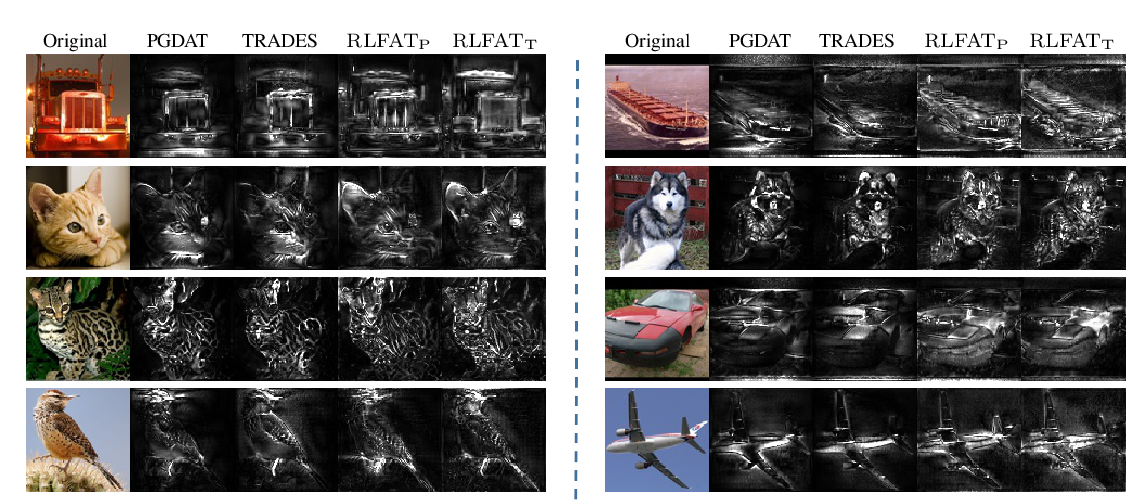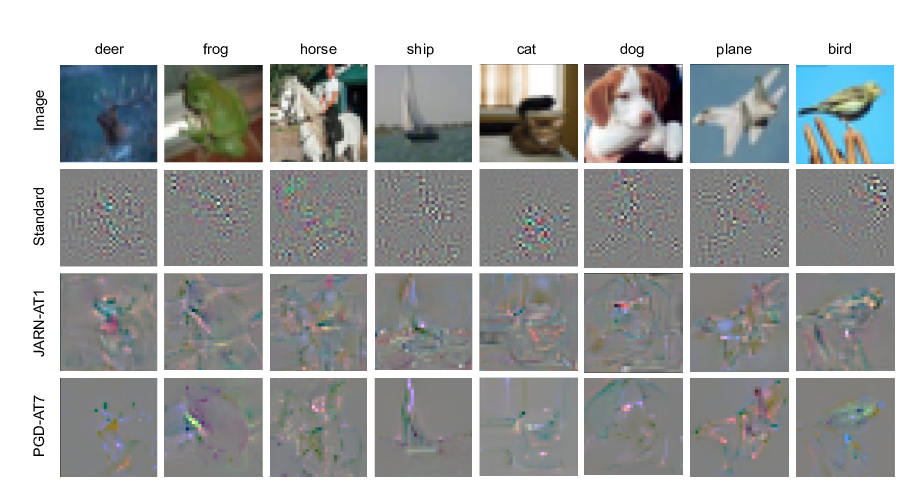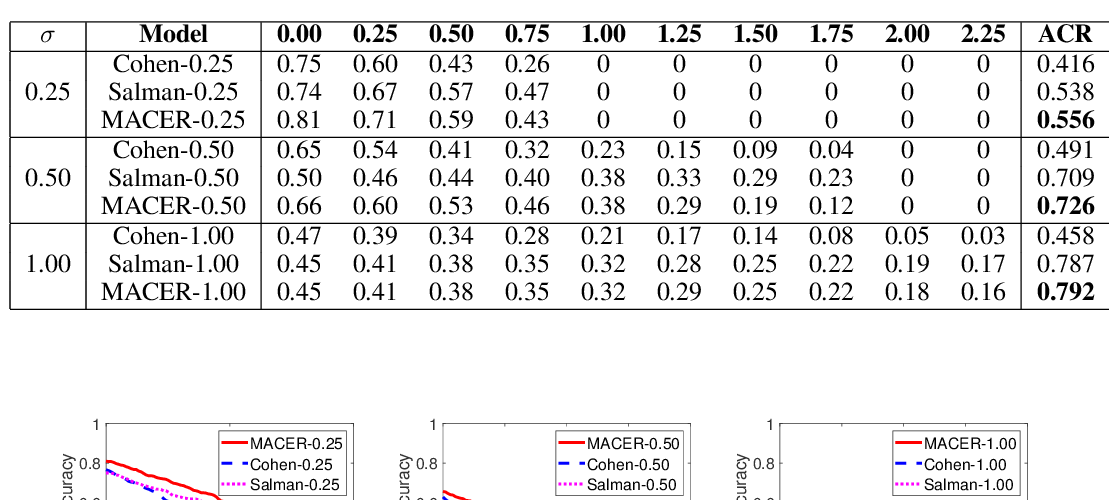Abstract:
Adversarial training, a method for learning robust deep networks, is typically assumed to be more expensive than traditional training due to the necessity of constructing adversarial examples via a first-order method like projected gradient decent (PGD). In this paper, we make the surprising discovery that it is possible to train empirically robust models using a much weaker and cheaper adversary, an approach that was previously believed to be ineffective, rendering the method no more costly than standard training in practice. Specifically, we show that adversarial training with the fast gradient sign method (FGSM), when combined with random initialization, is as effective as PGD-based training but has significantly lower cost. Furthermore we show that FGSM adversarial training can be further accelerated by using standard techniques for efficient training of deep networks, allowing us to learn a robust CIFAR10 classifier with 45% robust accuracy at epsilon=8/255 in 6 minutes, and a robust ImageNet classifier with 43% robust accuracy at epsilon=2/255 in 12 hours, in comparison to past work based on ``free'' adversarial training which took 10 and 50 hours to reach the same respective thresholds.


